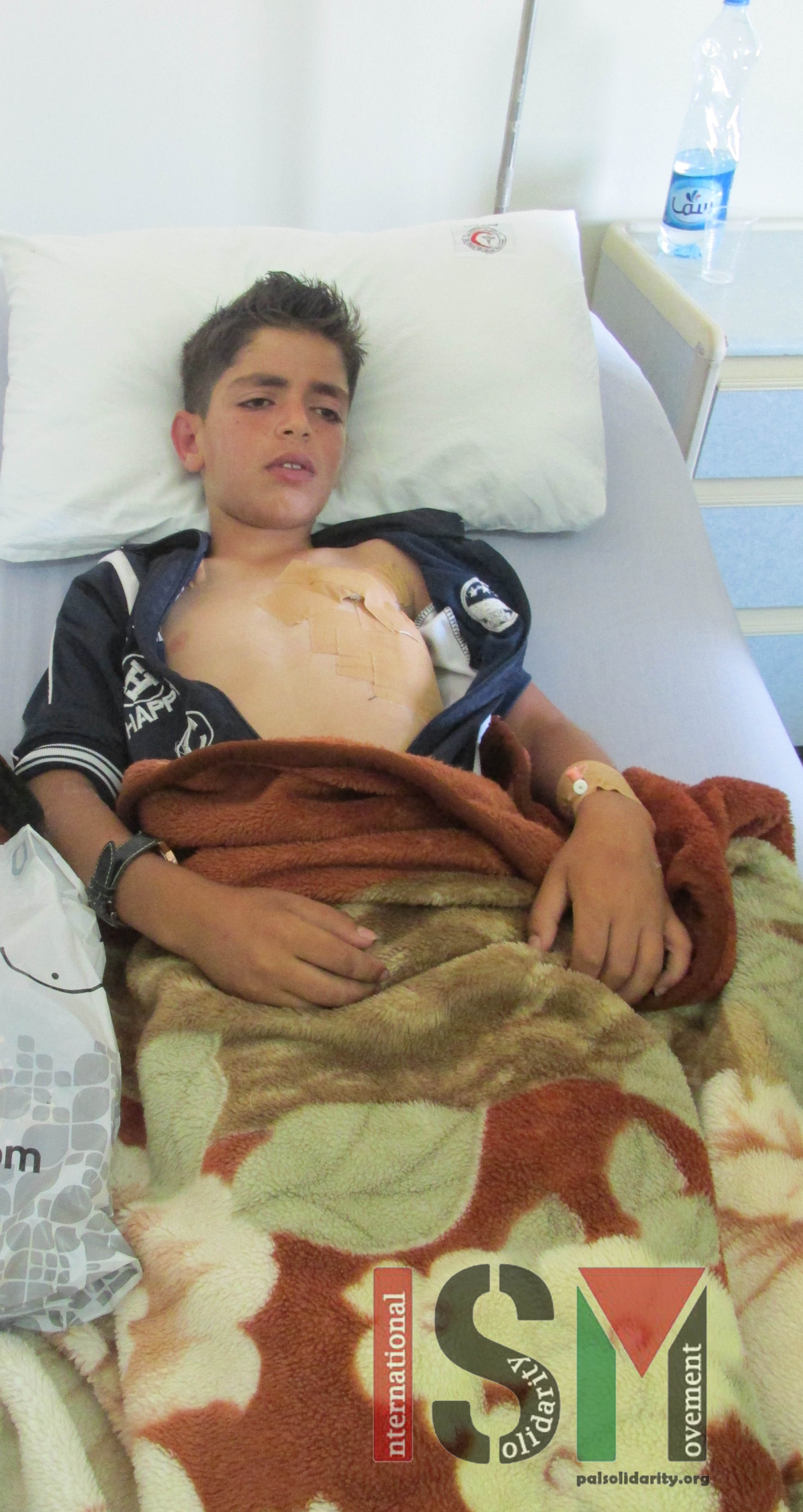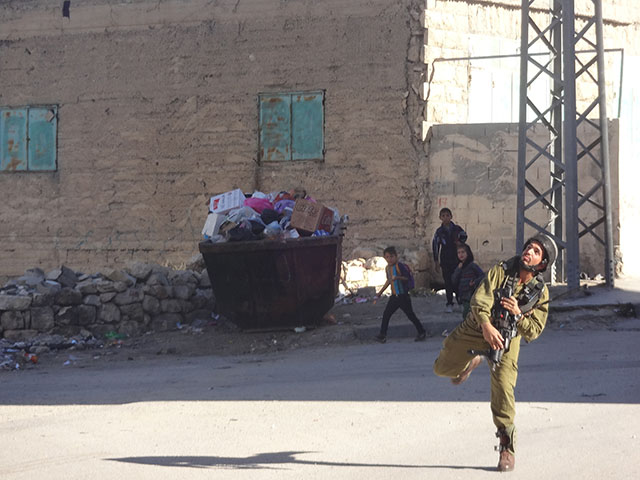Tag: Children
-
VIDEO: 15 tear gas grenades and 5 stun grenades fired at schoolchildren
25th August 2014 | International Solidarity Movement | Hebron, Occupied Palestine Today in al-Khalil (Hebron), Israeli forces fired 15 tear gas grenades and canisters, as well as five stun grenades at children as they waited to go to school. Each morning and afternoon the children of al-Khalil, some as young as four-years-old, are forced to cross…
-
10-year-old child shot in chest with live ammunition
6th August 2014 | International Solidarity Movement, Khalil team | Hebron, Occupied Palestine In al-Khalil (Hebron) on Sunday August 3rd, a 10-year-old Palestinian boy was walking to his home near the illegal settlement of Kiryat Arba when the Israeli military shot him in the chest with live ammunition. The following day, ISM volunteers went to visit the…
-
PHOTO STORY: Israeli soldiers continue harassment of schoolchildren in Hebron
15th May 2014 | International Solidarity Movement, Khalil Team | Hebron, Occupied Palestine This morning in al-Khalil (Hebron), one young child threw one stone towards the checkpoint. Four Israeli soldiers then entered through checkpoint 29, provoking the children who were gathered to go to school. Several children then threw approximately four stones towards the soldiers, who then threw…



